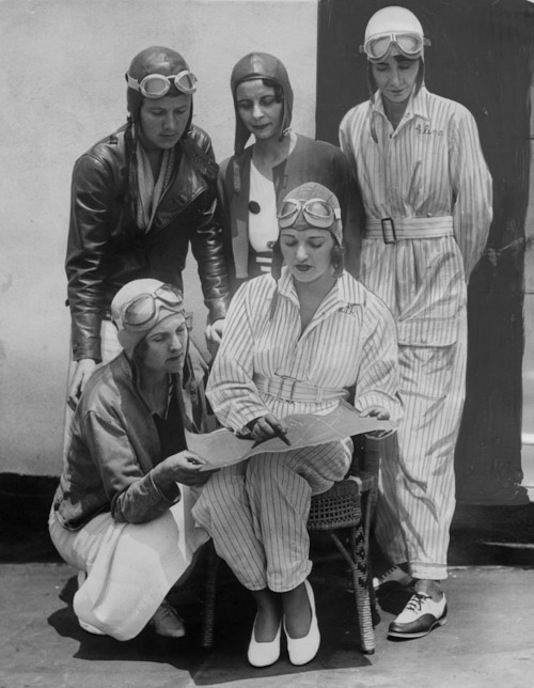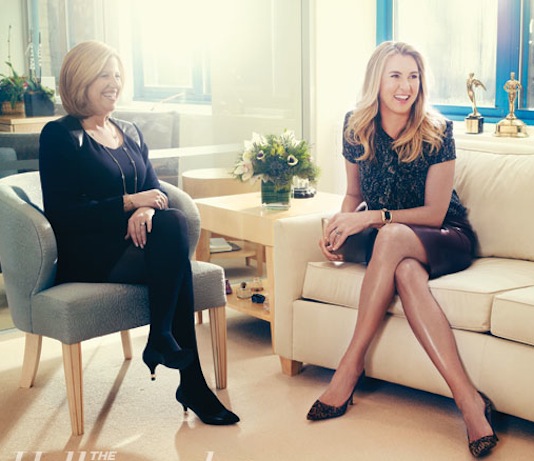Wait… What IS a Mentor, Anyway?
March 25, 2014

Pilots Gladys O’Donnell, Ruth Elder, Kay Van Doozer, Myrtle D. Mims, and Clema Granger preparing for the Memorial Day air races at Dycer Airport. 1934.
The word “mentor” has always made me feel a little weird. It’s often thrown around in the context of networking and career strategy, and while I understand the benefits of having a mentor, I always felt awkward about seeking one out. So I didn’t.
But March has been Mentor/Mentee month here at MM.LaFleur, and I was starting to feel a bit wistful about the fact that I’ve never had a mentor, until it struck me: I have had a mentor. In fact, I’ve had several—I just never thought of them as mentors or labeled them as such.
In every case, my mentor was just a more experienced coworker (or student or teammate), who had already gone through the fire and then paused long enough to share her insights with me. I was a willing recipient, and many of those advice-givers ended up becoming my friends. But nowhere in the transition from colleague to friend did I think, “You are now my mentor.” Even now, the word feels too formal, too forced. But the truth is, even I (label-resisting rogue that I am) have had mentors, and I’m thankful for them.

Photo by Miller Mobley / Hollywood Reporter
I don’t think I’m alone in realizing that many of my mentors have flown somewhat under the radar. While “formal” mentorships do exist, I imagine that the vast majority of mentorships are more freeform. Like me, you may not even know you have a mentor, and then you wake up one day and realize, “Oh! So-and-so has been mentoring me all along.” Or better still, you may wake up and realize you’ve been mentoring someone else.
What’s more: We often focus on mentorship within the professional realm, but out-of-work mentors are just as important. After all, in order to lead fulfilling lives, we have to learn how to live, not just work. Just as you need a mentor to help you navigate your career, you also need one for other big decisions or transitions: applying to college, choosing a major, renting an apartment, planning a wedding (my worst nightmare), having a child… the list goes on.
So what really makes a mentor? MentorCity published a list of things that mentors typically do. But I recently came across a less rigid definition that resonated with me. Annelise Jolley writes in Darling Magazine:
“Someone once told me that a mentor is someone who fights for you. I want someone like that on my side. I like to believe we’re never too old to be mentored and never too young to be a mentor—there’s always someone standing behind us, or someone who’s walked ahead of us. Mentors help you pick your way through rubble and quicksand. Like a trusty, tattered guidebook, they whisper tricks for making the most of your trip. They make the story better, richer and a lot more fun.”
So this is the definition I’m going with: A mentor is someone who fights for you, while making the journey more fun.
– Tory Hoen






